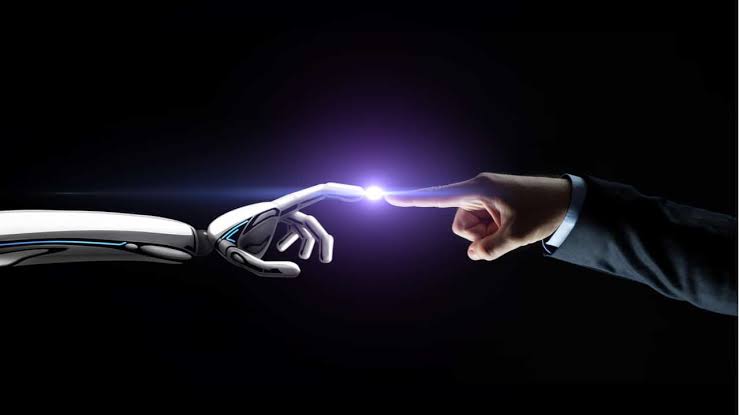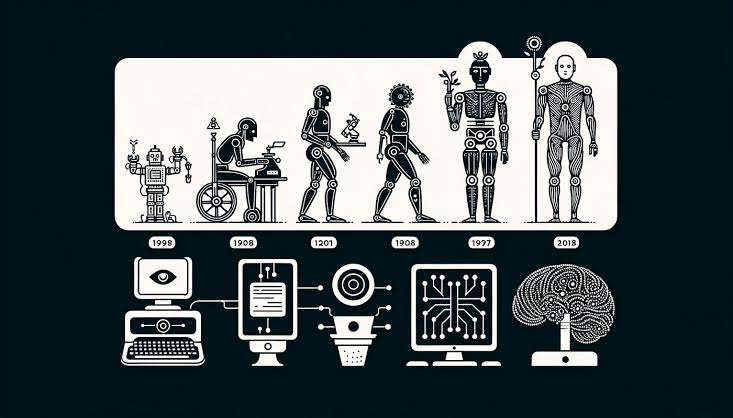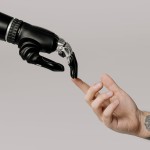Introduction: Increasing relevance of artificial intelligence in human life
Of the technologies of the twenty-first century, artificial intelligence (AI) is now among those most transforming ones. From personalized experiences to automation, artificial intelligence is changing sectors, businesses, and daily life itself. But the fast development of artificial intelligence raises moral, social, and philosophical issues as well. Under the joint auspices of the Malaviya Centre for Ethics and Values and the Centre for Intercultural Studies, specialists assembled at a special lecture held at Banaras Hindu University (BHU) to explore the need of making artificial intelligence more human-friendly and accessible. Prof. Rajeev Sangal, the former director of BHU and a renowned scholar in artificial intelligence and machine translation, among other AI experts, explored the deeper prospects and problems presented by artificial intelligence technology.

AI: Possibilities and Difficulties
In basic words, artificial intelligence is the replication of human intelligence in robots designed to think and learn like humans. Visual perception, speech recognition, decision-making, and language translation are just a few of the activities AI systems are made to do usually requiring human intelligence. But along with this great promise comes equally important set of difficulties.
Ethical Issues:
The ethical element of artificial intelligence emerged as one of the main issues raised during the presentation. Prof. Sangal underlined the need of infusing human values into artificial intelligence systems. Even if artificial intelligence can do jobs quickly, the question of "Can machines be conscious?" still stands. Although artificial intelligence can replicate cognitive abilities, it lacks real consciousness or emotional understanding, which creates certain ethical conundrums particularly in spheres like decision-making and privacy.
For example, depending on the data AI is fed, it can be biassed. The Ethiopian Airlines disaster case was a clear illustration of how badly calibrated artificial intelligence systems can cause disastrous outcomes. The aircraft's AI system seized control and made judgments contradicting human safety, resulting in a fatal tragedy.
Privacy and AI: Could Machines Protect Personal Space?
Another center of the conversation was privacy's element. AI systems have access to personal data more and more as they get more entwined with our daily life. From financial institutions to social media channels, artificial intelligence is handling and evaluating massive volumes of personal information. This begs the issue: *Can artificial intelligence really guard human privacy?*
The talk emphasized how dual nature artificial intelligence is in the privacy sphere. By means of sophisticated algorithms, AI can improve security by spotting possible hazards and safeguarding of private data. Conversely, poorly controlled or unethical artificial intelligence uses might result in privacy violations whereby personal data is utilized for targeted advertising, spying, or even cyberattacks.
Prof. Sangal said that we have to make sure privacy is safeguarded by design, with robust laws and ethical supervision if we are to have AI really human-friendly. Very serious are the dangers of AI-driven technology being weaponized against the very people they are meant to assist; developers and legislators have great responsibility to reduce these risks.
AI and the Workforce: Transformational or Disruption?
An additional important subject of conversation was how artificial intelligence affects jobs. Historically, technological developments have created as well as destroyed employment. AI is not unique either. Some think that artificial intelligence will replace jobs, especially those involving repetitive, hand labor. But as Prof. Sangal said, artificial intelligence could generate new kinds of employment, especially in industries requiring cerebral labor.
One excellent illustration of this two-edged influence is the *computer revolution*. Although computers did replace some physical labor, they also brought in an era of unheard-of employment in IT, software development, and other tech-driven industries. In fields including *data science, machine learning, and AI ethics*, artificial intelligence could also create highly sought-after professions requiring specific knowledge opening new career paths.
Ensuring inclusiveness in this workforce change is a difficulty, though. Providing sufficient education and training is crucial as artificial intelligence (AI) replaces human activities more and more. It will enable individuals to move into these new roles. Prof. Sangal underlined the need of reskilling and upskilling, thereby guaranteeing that those displaced by artificial intelligence have access to possibilities in the developing AI-driven economy.
Machine Sensitivity: Is Empathy Developable in AI?
One of the main philosophical issues the talk brought up was whether machines could become empathic or really sensitive nature. True empathy, the capacity to comprehend and experience the emotions of another, remains beyond AI's reach even while it can be taught to react to human emotions or even replicate emotional expressions.

Can artificial intelligence learn empathy? Still up for debate is this for continuous investigation. Although artificial intelligence systems may identify trends in human behavior and even replicate sympathetic reactions, their capacity to really "feel" in the manner humans do is limited by the absence of actual emotional consciousness. In sectors like healthcare, where patient care depends much on empathy and personal connection, this restriction might become problematic.
Prof. Sangal advised that the best course forward is *AI-human cooperation*. Humans will always be vital in fields needing emotional intelligence, sensitivity, and empathy even when artificial intelligence can help with activities requiring great degrees of data processing or repeated acts. He maintained that using AI to complement and improve human capacities should be the aim, not to replace people with robots.
AI for Human Advantage: Bhashini App as Illustration
Developed as part of India's AI projects, the *Bhashini App* is a real-world example of artificial intelligence being applied for human benefit. The Bhashini App makes it simpler for individuals to interact across language barriers since it lets 15 Indian languages be seamlessly translated. In this context, the use of artificial intelligence highlights how technology may remove obstacles and advance inclusivity—especially in a nation like India with many languages and dialects.
Prof. Sangal underlined how artificial intelligence may help underprivileged people to have better access and connectivity. AI can guarantee that more individuals are able to access services, education, and possibilities by making technology available in regional languages, therefore helping the country to grow generally.
Public Involvement in Artificial Intelligence Shaping
The lecture's main focus was on how public participation may help to shape artificial intelligence's course. Prof. Sangal argued that AI should not be developed in isolation by a small group of experts. Rather, it should entail active involvement among a broad spectrum of players, including industry executives, legislators, and the general public.
The wider society has to have input on how artificial intelligence is produced, applied, and controlled. This calls for raising knowledge of artificial intelligence's possibilities and hazards, supporting education on AI technology, and fostering discussions on the moral application of AI. Encouragement of public participation helps us to guarantee that artificial intelligence develops in a way that advances society as a whole instead of merely serving the needs of a small number of people
The Part Government Plays in AI Evolution
Another important issue of debate was governments' part in the evolution of artificial intelligence. Regulating artificial intelligence can be very important for governments to guarantee ethical use and foster innovation at the same times. Already, the Indian government is working to include artificial intelligence into several industries like education, healthcare, and agriculture.
Prof. Sangal underlined, nevertheless, that more had to be done to produce a well-balanced strategy. Governments have to fund AI research and development, give incentives for AI-based businesses, and create unambiguous laws to guard against possible AI abuse of people.

Final Thought: The Future of Artificial Intelligence - Towards a Human-Centric Approach
The presentation at Banaras Hindu University gave a thorough view of the several aspects of artificial intelligence and the need of making it more human-centric. From ethical questions and privacy difficulties to labor disturbances and the possibility for public benefit, artificial intelligence offers both possibilities and problems.
The general consensus among the experts was that AI is here to stay but it is up to us to decide its future. We can build an AI-powered society that improves human capacities, protects privacy, and generates fresh opportunities for all by supporting human values, public involvement, and responsible government ensuring.
We have to make sure that as artificial intelligence develops it is not only a tool for efficiency but also a force for good consistent with human values and ethics.












